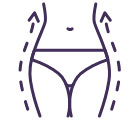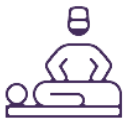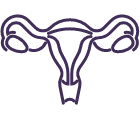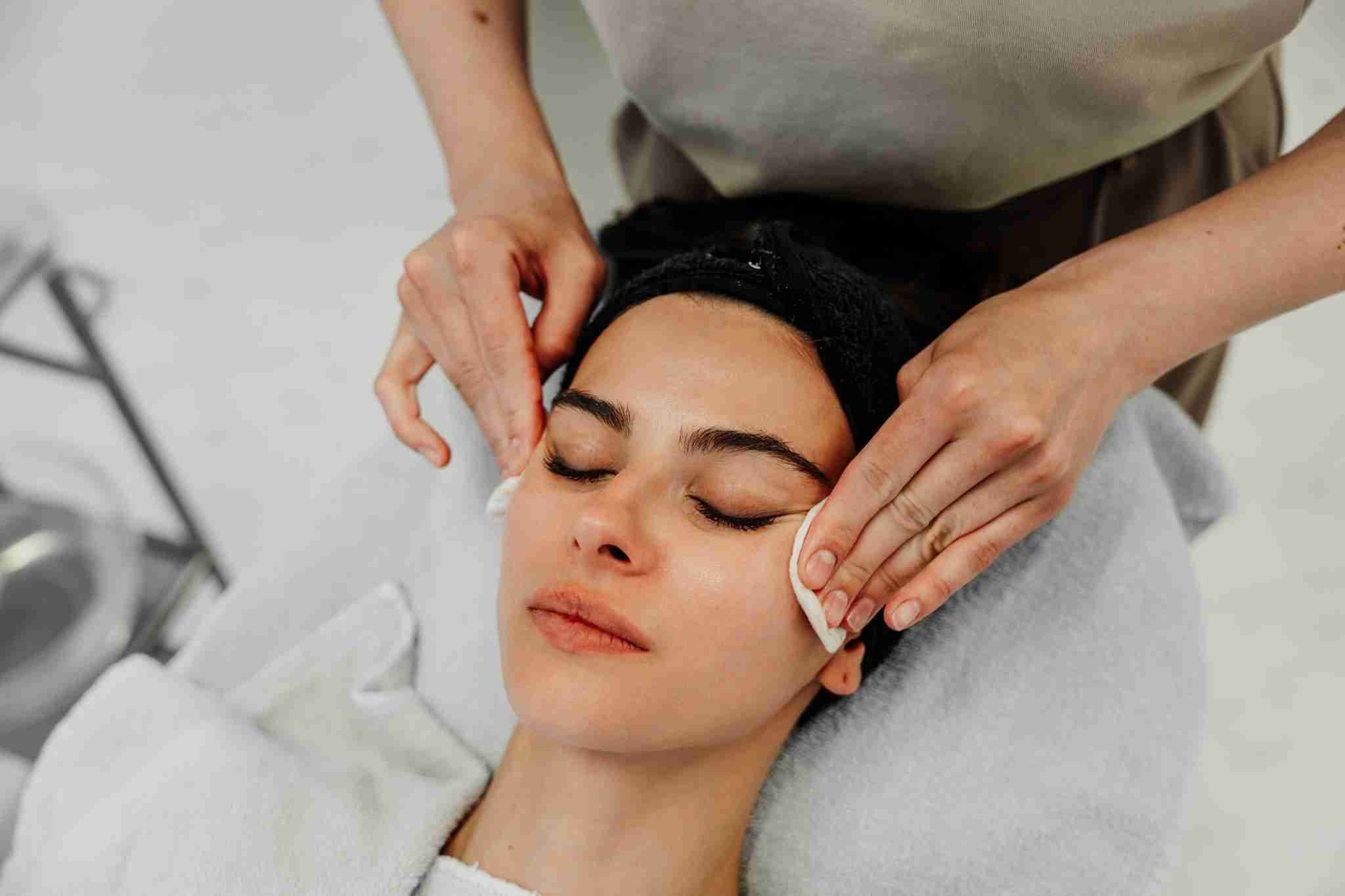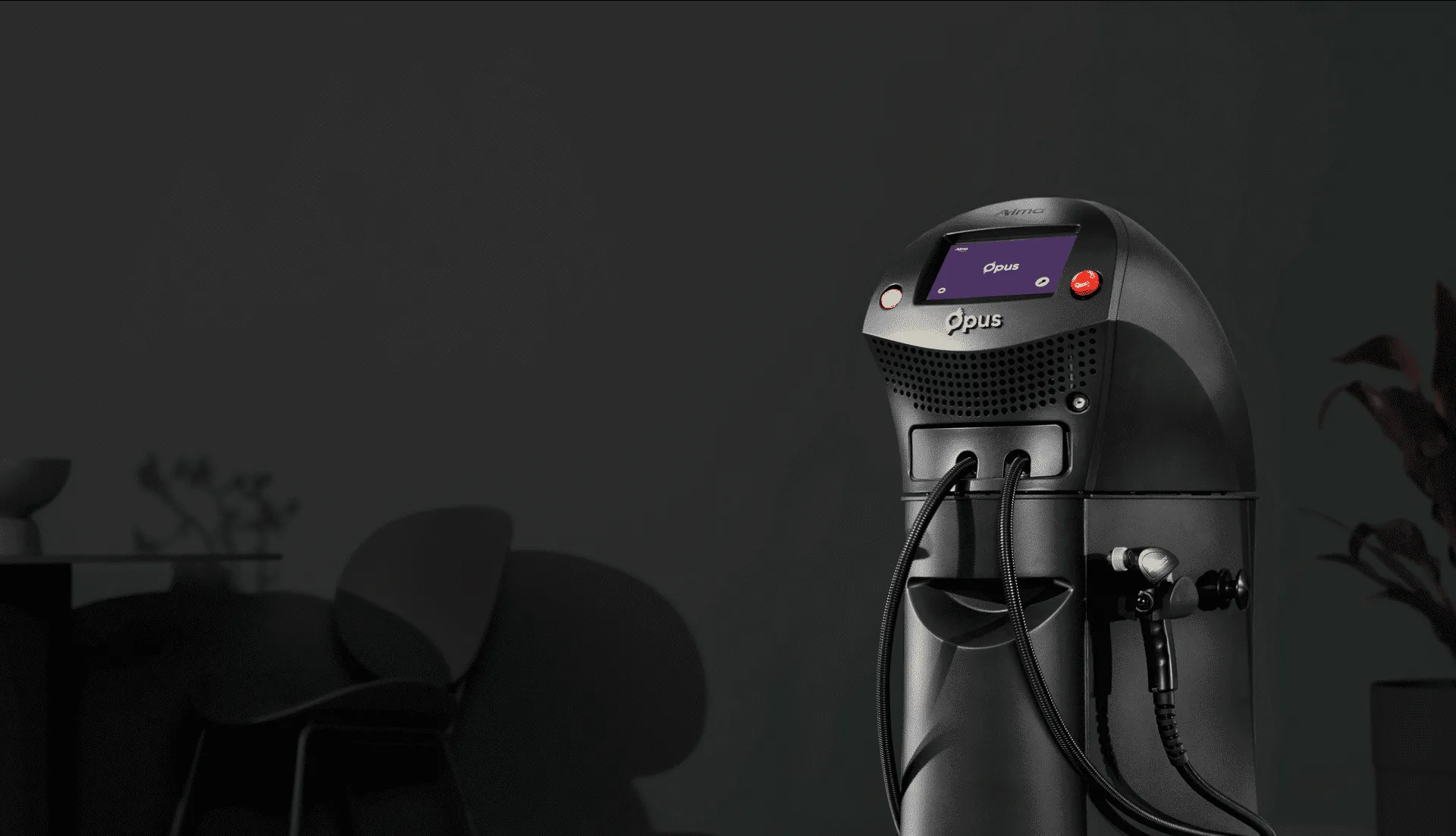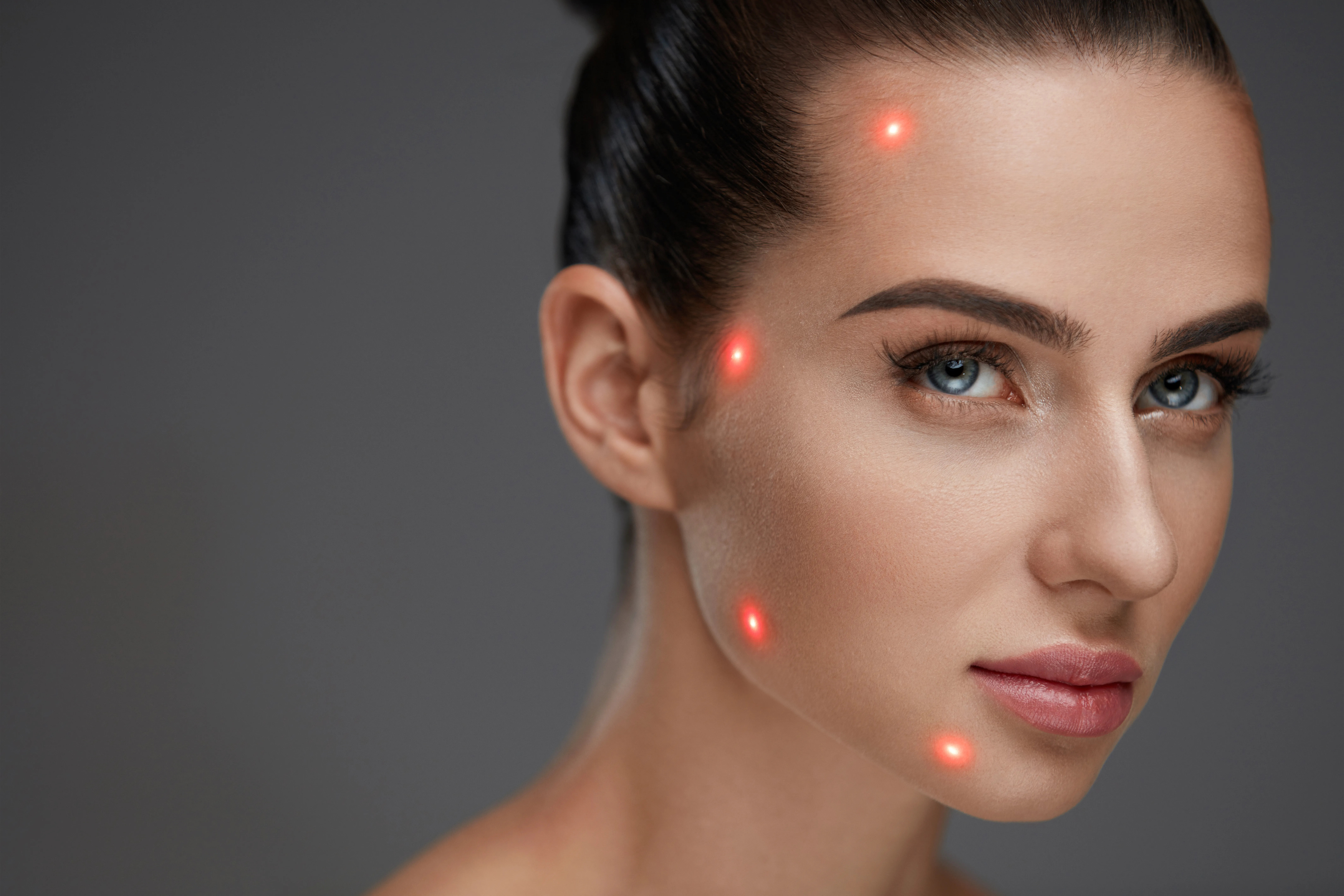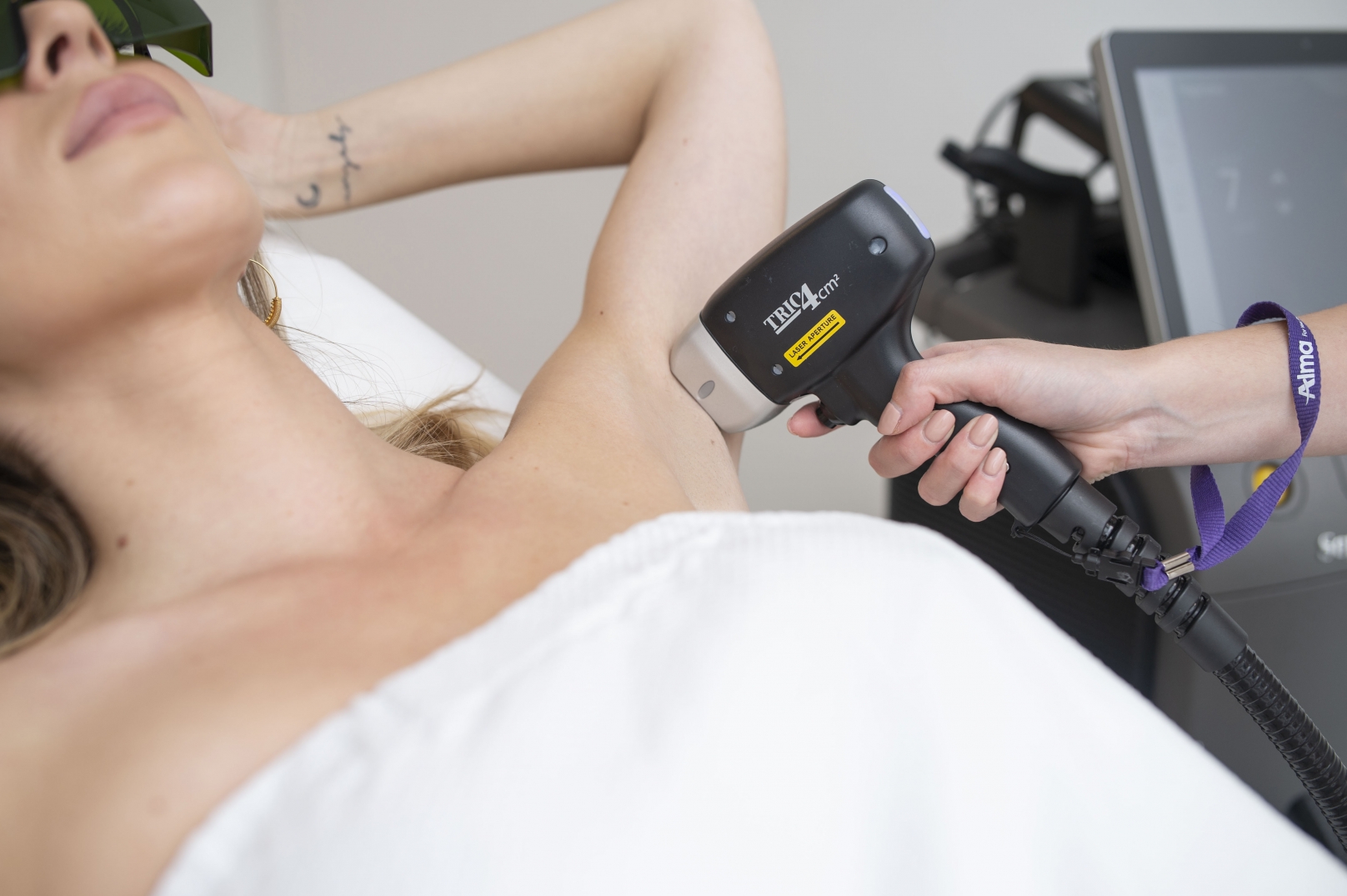If you’re passionate about skincare and enjoy helping others look and feel their best, a career in skincare might be your ideal path. But what is an esthetician? An esthetician is a trained skincare professional who specialises in treatments to improve the health and appearance of the skin.
From facials to hair removal, estheticians use various techniques to address skin concerns, helping clients achieve their skincare goals while boosting their confidence.
This guide will walk you through what an esthetician is, the training required, and the opportunities this career offers, making it a fulfilling choice for anyone with a passion for beauty and wellness.
What is an Esthetician: Understanding the Role
At its core, an esthetician is a skin care specialist dedicated to improving clients’ skin health and appearance. Through various treatments, estheticians focus on improving skin condition, addressing concerns like acne, signs of ageing, or dullness, and helping clients achieve a natural glow.
Here’s an overview of the key responsibilities and services provided by an esthetician:
Types of Services Offered by an Esthetician
Estheticians perform a range of treatments, which vary depending on the client’s needs. Common services include:
- Facials and Masks: Tailored treatments designed to cleanse, hydrate, and rejuvenate the skin, leaving it refreshed and glowing.
- Exfoliation: Using techniques like microdermabrasion and chemical peels, we remove dead skin cells to reveal a fresher, smoother complexion.
- Hair Removal: Smooth, hair-free skin is achieved through expert methods such as waxing, threading, or sugaring.
- Acne and Anti-Ageing Treatments: Light therapy, acne masks, and wrinkle-reduction treatments are commonly provided.
- Body Treatments: Beyond facial care, our body scrubs and wraps exfoliate and renew the skin across the body, improving texture and softness.
- Relaxation and Wellness Services: Indulge in facial massages and scalp treatments that promote relaxation, improve circulation, and ease tension, supporting overall well-being.
Estheticians also offer guidance on home skincare routines, helping clients choose products suited to their skin type and lifestyle. Many estheticians work with premium skincare brands, using and recommending products to support clients’ skincare routines outside the treatment room.
How to Become an Esthetician: Steps and Training
For those interested in becoming an esthetician, formal training and certification are required to work in the industry. Here’s a step-by-step guide to starting your journey as a licensed esthetician:
Step 1: Meet Educational Requirements
Before enrolling in an esthetician course, you’ll generally need a high school diploma or GED. This foundational education is essential as it ensures you are equipped for the blend of practical skills and theoretical knowledge that an esthetician training programme involves.
With a solid educational base, you’ll be better prepared for hands-on techniques and skin science subjects included in the curriculum.
Step 2: Apply to an Esthetician Programme
After meeting the educational requirements, the next step is to search for an esthetician programme aligned with your career goals. Many aspiring estheticians choose beauty schools, vocational institutions, or community colleges offering specialised esthetician courses.
Researching different programmes is key to finding one that matches your interests, as well as covering topics and skills relevant to today’s beauty industry. This programme will provide you with the necessary training and certifications to advance in the field.
Here’s what to expect during the application process:
- Required Documents: You’ll likely need to provide proof of identity and academic qualifications.
- Entrance Exams or Aptitude Tests: Some schools assess applicants’ skills to ensure readiness.
- Health Screening: A brief health screening may be required, which can include a drug test to meet school policies.
Step 3: Complete Esthetician School
Esthetician training provides a comprehensive blend of classroom instruction and hands-on practice. Programmes generally range from 300 to 1,500 hours, depending on the requirements set by local authorities or individual schools. The curriculum is designed to build essential skills, knowledge, and experience in areas such as:
- Skin Treatments: Techniques for facials, massages, exfoliation, and toning, helping clients maintain and improve skin health.
- Human Anatomy: Understanding the structure of the skin and how various treatments impact different layers, which is crucial for delivering effective skincare.
- Makeup Application: Skills in applying makeup tailored to diverse skin types, tones, and occasions.
- Hair Removal: Training in techniques like waxing, threading, and other methods to ensure safe and effective hair removal.
- Product Knowledge: In-depth understanding of skincare products, including active ingredients and their effects, enabling estheticians to recommend suitable options for clients.
- Hygiene and Safety: Emphasis on sterilisation practices and proper hygiene, essential for maintaining a safe and professional environment.
- Business Skills: Basics of client relationship management, booking systems, and the fundamentals of running a beauty business.
Initially, students practice on mannequins to develop confidence and precision. Once proficient, they progress to working with real clients under supervision, allowing them to refine their techniques and ensure they’re fully prepared for a professional setting.
This practical experience is invaluable in helping future estheticians build the confidence and expertise needed to succeed in the industry.
Licensing and Additional Certifications
After completing an esthetician programme, licensing is generally required to work professionally. Here’s a closer look at the key qualifications and certifications you may need:
- Licensing Exams: Most areas require estheticians to pass a written and practical exam to obtain a licence. Requirements vary by region, so it’s essential to check with local authorities.
- Additional Certifications: Extra credentials can boost your career and broaden your service offerings. Certifications in areas like Medical Esthetician, Laser Technician, or Advanced Skincare Specialist can make you more competitive in the industry.
These qualifications validate your expertise and allow you to offer more advanced treatments, opening doors to diverse opportunities in the skincare field.
Estheticians vs Dermatologists: Key Differences
A common question is how estheticians differ from dermatologists. Both are skincare professionals, but their roles and expertise differ significantly.
- Estheticians: These professionals focus on cosmetic skin treatments, working in salons or spas. They provide services such as facials, hair removal, and skincare advice but do not diagnose or treat medical skin conditions.
- Dermatologists: These are medically trained doctors who diagnose and treat skin diseases. They handle complex skin issues, prescribe medications, and perform clinical procedures.
For clients with cosmetic skincare needs, an esthetician is often the right choice. However, for those dealing with medical skin conditions, a dermatologist’s expertise is essential.
Career Opportunities and Esthetician Income
An esthetician’s income varies based on experience, location, and the types of services they offer. For entry-level estheticians, salaries may be moderate, but with additional certifications and specialisations, earning potential increases. Working in high-end spas or alongside medical professionals can also boost income.
Career paths for estheticians include:
- Salon or Spa Employment: Many estheticians find roles in beauty salons or spas, working as in-house skincare specialists. In these settings, estheticians provide a range of treatments, from facials and exfoliation to advanced anti-ageing services, helping clients achieve their skincare goals. Salon or spa employment offers stability and often includes opportunities for professional growth within a supportive environment.
- Medical Esthetics: With additional certifications, estheticians can enter the field of medical esthetics, working alongside dermatologists, plastic surgeons, or in medical spas. In these roles, estheticians may perform more advanced treatments, such as laser therapy, chemical peels, or microdermabrasion, under medical supervision, focusing on clients with specific skin concerns.
- Self-Employment: Many estheticians choose to start their own skincare businesses, allowing them to set flexible schedules, personalise treatments, and build a loyal client base. This route encourages creativity and offers independence.
- Product Sales and Brand Representation: Some estheticians work with skincare brands, promoting products and educating clients on their benefits and application. This role may involve brand representation, hosting workshops, or teaching product usage techniques, merging skincare expertise with product knowledge.
Essential Skills for Estheticians
To excel as an esthetician, a blend of technical skills and personal qualities is essential. Here are some key skills that contribute to a successful career:
- Communication: Clear communication allows estheticians to explain treatments effectively, while good listening skills help them understand client needs and preferences.
- Customer Service: A warm, friendly approach helps clients feel comfortable, leading to repeat business and referrals.
- Attention to Detail: Precision is critical, particularly with treatments like hair removal or skincare routines that require accuracy.
- Time Management: Managing appointments efficiently is crucial in a client-based role.
- Problem-Solving: Clients have unique skincare needs, so an esthetician must know how to adjust treatments to suit each individual.
These skills, combined with a passion for skincare, can help estheticians build a loyal client base and thrive in the beauty industry.
Educational Pathways and what is an esthetician
After becoming licensed, many estheticians choose to specialise, expanding their knowledge and service range. Here are some common areas of specialisation:
- Medical Esthetics: Involving more advanced treatments like laser therapy and electrolysis, medical esthetics allows estheticians to work in clinical settings.
- Makeup Artistry: This specialisation is ideal for those interested in cosmetics, offering makeup services for events, weddings, or media productions.
- Anti-Ageing Treatments: Estheticians who focus on anti-ageing offer treatments for fine lines, wrinkles, and skin elasticity.
Specialising can improve an esthetician’s service offerings, increase client retention, and attract new customers.
The Distinction Between Estheticians and Aestheticians
Though “esthetician” and “aesthetician” are often used interchangeably, they refer to professionals with distinct roles and training:
- Estheticians: These professionals typically work in salons and spas, focusing on cosmetic treatments designed to improve skin appearance and beauty. Common treatments include facials, exfoliation, and hair removal. Estheticians’ work centres on beauty and relaxation, providing treatments that improve the skin’s appearance in a non-medical setting.
- Aestheticians: Often referred to as medical aestheticians, they work in clinical environments, such as dermatology offices or medical spas, where they focus on advanced skincare treatments. With specialised training, they perform procedures like chemical peels, laser therapy, and assist with pre- and post-surgical care. Aestheticians typically work alongside healthcare professionals.
For estheticians interested in medical skincare, pursuing additional certifications can open pathways to aesthetician roles, allowing them to deliver more intensive, medically oriented skincare treatments. This distinction highlights the different paths and opportunities within the skincare profession.
Conclusion: Is a Career as an Esthetician Right for You?
The journey to becoming an esthetician is both fulfilling and impactful, making it an excellent career choice for anyone passionate about skincare.
With the proper training, licensing, and commitment to ongoing learning, you can build a successful career that makes a meaningful difference in clients’ lives. Whether you aim to work in a spa environment or pursue a clinical setting, becoming an esthetician opens up a world of possibilities in skincare.
Take the Next Step in Your Skincare Journey
If you’re considering advanced skincare treatments, explore the benefits of professional-grade solutions. But what is an esthetician? An esthetician is a trained skincare expert who can guide you through treatments offered by Alma Lasers to help you achieve smoother, more radiant skin. Start your journey to improved skincare today!

